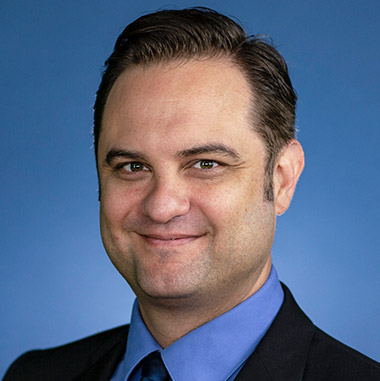
We Are at Our Best When We Serve Others
As we approach the halfway point of fall and round the corner toward the colder days of winter, we may find ourselves more and more socially distant as early sunsets and chilly nights drive us into our homes. The moments where we might have been able to share a six-foot-apart laugh with our friends and relatives at a park or at an outdoor cafe will become fewer and farther between as we hunker down for the winter. For some, this holiday season may be the first that is endured without the familiar laugh of a loved one or the smell of a relative’s famous home cooking. How we navigate these trying times is something that none of us will likely ever forget, and how we connect with each other will shape our perspectives on this era for years to come.
As I reflected on what we have all been through and what we are currently going through, I started asking myself how I, as a lone person in a big world, could make a positive impact on those around me. I like to contemplate these existential subjects when I’m hiking on my favorite trails, far away from the beeps and dings of a houseful of electronics.
It was on a recent hike with my seven-year-old son that I asked him what his thoughts were on how we could help make the world a better place. Sometimes the perspective of a second grader can be insightful and enlightening, so I figured why not, let’s give it a shot. His response was, “We should bake cookies and hand them out to people”. A child after my own heart! Now, whether his motivations were altruistic or he just wanted a fresh batch of cookies in the house is anyone’s guess, but his answer got me thinking of a story I read not long ago about serving others in early civilization. Dr. Ira Byock included an anecdote attributed to Margaret Mead in his book The Best Care Possible:
Years ago, anthropologist Margaret Mead was asked by a student what she considered to be the first sign of civilization in a culture. The student expected Mead to talk about fishhooks or clay pots or grinding stones.
However, Mead said that the first sign of civilization in an ancient culture was a femur (thighbone) that had been broken and then healed. Mead explained that in the animal kingdom, if you break your leg, you die. You cannot run from danger, get to the river for a drink or hunt for food. You are meat for prowling beasts, and that no animal survives a broken leg long enough for the bone to heal.
A broken femur that has healed is evidence that someone has taken time to stay with the one who fell, has bound up the wound, has carried the person to safety and has tended the person through recovery. Helping someone else through difficulty is where civilization starts, Mead said.
I maintain that most of us entered into the fundraising profession because of this inherent need and desire to serve others. Whether you work at a community foundation that helps your local neighborhoods, a university to help students actualize students’ potential through a scholarship or a new computer lab, or a faith-based organization helping guide and develop spirituality, our mission is the same: To serve those around us.
If we consider the anecdote from Margaret Mead, serving others is arguably the very basis for modern civilization: It is how we are able to successfully function and progress as a society. It is how we help those around us rise up, so they can in turn help others rise up. Now, we might not all be tending to broken bones, but the desire to serve others in our modern world originates from the same place as it did for our ancestors: our greatest impact on the world comes from how we serve those around us.
We rely on each other, and as we head into winter, we may need to rely on each other a bit more than we have in the past, and that is okay. It is what we do – It is in our blood.
We are at our best when we serve others.

By Matt O'Neill
Integrated Marketing Specialist - Northeast Region, Crescendo Interactive, Inc.
 Douglas Beech says:
Douglas Beech says: October 21, 2020 3:57 PM PT
Thank you so much Matt for sharing this uplifting and meaningful message. It is very much appreciated!!

October 21, 2020 3:56 PM PT
Nicely done, Matt.